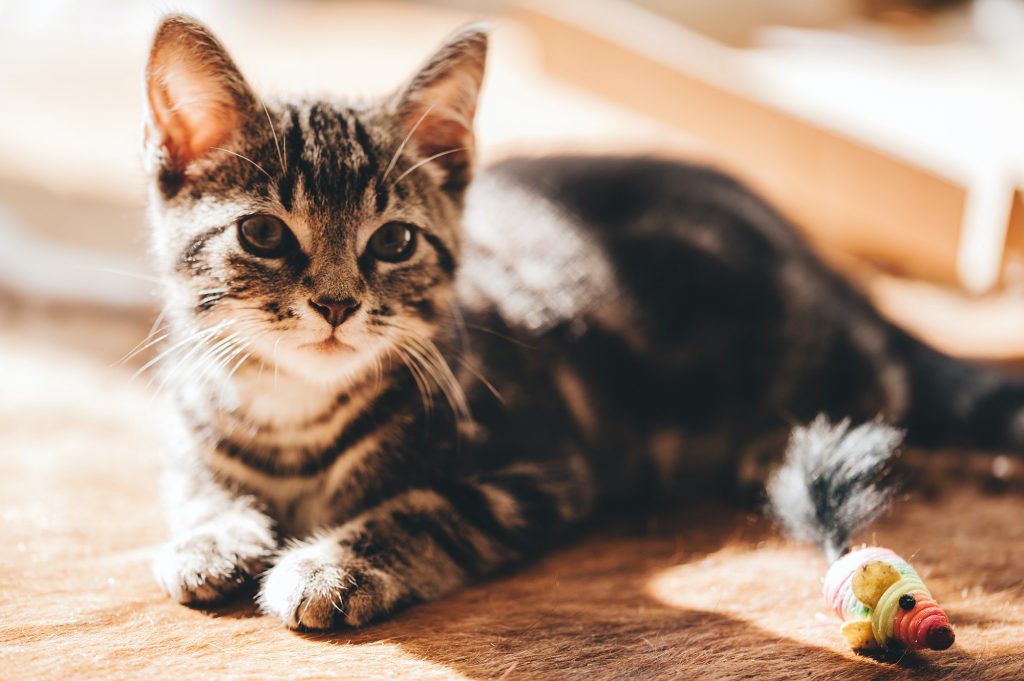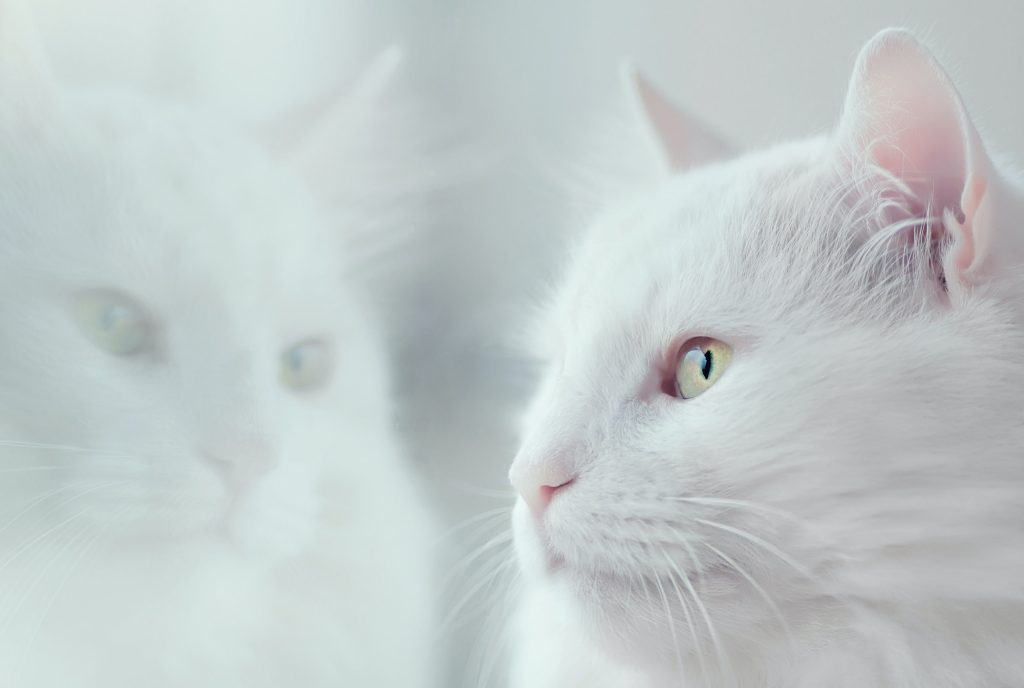
Going Away? Top Ten Tips for Your Cat’s Care
Jan 26 2023.
With lockdown easing in most places around the world, travel plans are starting to re-emerge. The excitement of a trip can sometimes be tinged with anxiety when thinking about leaving your cat at home. To make sure you and your kitty are ready, Cat in a Flat has put together the following checklist of how to prepare for your cat’s care before going away.
Table of contents
- 1. Decide what kind of care your cat needs when going on vacation
- 2. Arrange your cat care early
- 3. Make sure your cat is up to date on vaccinations, medication and flea treatment
- 4. Introduce your cat to their cat sitter
- 5. Leave detailed instructions for your cat sitter
- 6. Cat proof your house
- 7. Take note of the weather conditions
- 8. Leave something of you behind
- 9. Arrange to be sent daily updates
- 10. Enquire if your cat sitter is happy to do some additional tasks
1. Decide what kind of care your cat needs when going on vacation
Before arranging cat care, it’s vital to assess what level of attention your kitty will need while you’re away. For most cats, a daily or twice-a-day visit from a cat sitter will be enough. Each visit should include replenishing food and water bowls, cleaning the litter box and playing with your furry friend. If your kitty is the affectionate type, then cuddle time should be factored in too.
For cats who need more attention, you should consider an overnight sitter. Cats who could benefit from overnight care include anxious kitties, kittens, elderly or wobblier cats. A human presence overnight should calm your cat’s nerves and help keep your mind at rest. If your cat needs medication, make sure to find a cat minder who has experience in administering that kind of treatment.

2. Arrange your cat care early
Whatever level of care you choose for your cat, make sure you arrange it well ahead of time. During the busy seasons cat sitters and catteries get fully booked very quickly. Arranging your cat sitter early also means you’ll have time to properly prepare your kitty and carer for your time away.
Cat in a Flat would strongly advise searching for a local sitter in walking distance, or one with personal transport. You should also have a plan B in case your cat sitter has to self-isolate while you’re away.
3. Make sure your cat is up to date on vaccinations, medication and flea treatment
When preparing your cat’s care before gooing away, check that your cat is up-to-date with vaccinations, flea treatment and health checks as soon as you can. Book an appointment with your vet early if you need to take Mr Whiskers in before you go. You should also make sure you have enough of your cat’s medication if they are taking any.
4. Introduce your cat to their cat sitter
If possible, prepare your cat for being cared for by a sitter by introducing them before you go away. Establishing a relationship is especially beneficial for anxious or skittish cats. Your absence can be stressful for your kitty, and an unknown person coming into the house can make your cat even more nervous. Cats are naturally very territorial and don’t like disruption to their home environment. Owners should invite carers round to meet the cat and give them time to become acquainted. Give your furry friend the chance to have a good sniff of their cat nanny in a relaxed setting, so their smell is familiar when they return.
Prepare for your cat’s care by introducing your cat sitter to your house and its particularities before you leave. You should brief them too on your cat’s routine, likes and dislikes. It’s also your chance to make sure you approve of and trust the cat sitter if you haven’t met them before.
At the moment, it is essential to take into account the advice relating to Covid-19. Cat in a Flat recommends that introductions should currently be held over video conferencing to avoid unnecessary contact. The video call should include a tour of the house and an introduction to Mr Whiskers and his routine. You should also discuss self-isolation strategies and health to make sure both parties are doing what you can to stay safe.
5. Leave detailed instructions for your cat sitter
Your cats care instructions:
As well as meeting your sitter before a trip, you should prepare detailed instructions on how to care for your furry friend. Cats are creatures of habit and can react badly to disruption in their routine. Make sure you return to a happy, stress-free kitty by keeping their days as similar as possible. There should be no change in meal times, litter box, food or bowls. If your cat needs medication, this should also be itemized and carefully explained with step-by-step instructions. Similarly, leave a list of your cat’s likes and dislikes, favourite toy and where the treats are – anything to keep your kitty happy and relaxed.
To minimise the spread of viral particles during Covid-19, sanitise everything your sitter will need and leave it in one place. Try and avoid your sitter having to move through your house as much as possible. Your cat carer should wear single-use gloves for every visit if possible and should wipe down everything they use before they leave.
Leave ‘in case of emergency’ details:
Essential but easy to forget – always leave the contact details of someone your cat carer can contact in case of emergency. The person could be a friend, neighbour or family member: anyone who knows you and your cat well. Brief your emergency contact on your situation, and always leave them with a key to your home. You should also leave the telephone number and address of your cat’s vet with your sitter.
Having an emergency back up is imperative during Covid-19. You need to ensure there’s someone to take care of your cat if your sitter has to self-isolate. With travel restrictions changing rapidly, you also need to make sure you have a cat carer if you get stuck somewhere. For this reason, your sitter shouldn’t return your key until you are safely back at home.
6. Cat proof your house
With your home being empty for long periods while you’re away, it’s wise to think about preparing your space with some extra cat proofing. The last thing any cat owner wants is for their furry friend to get stuck, stressed or injured.
- Make sure internal doors are blocked with heavy objects, locked closed, or held open to avoid your cat getting trapped in a room.
- Blind and curtain cords should be tied up and out of reach to avoid your kitty getting tangled.
- Stressed cats can adopt irregular behaviours, including excess chewing of items around the house. For this reason, you should cover, hide or unplug electrical cords as much as possible. You could consider spraying electrical cords with a bitter or citrus-based spray to stop any temptation to chew.
- If you haven’t checked whether your houseplants are cat-friendly, you should move them out of Mr Whiskers’ reach.
- Make sure your cat sitter knows which windows can stay open and which should be shut.
For anxious cats, you could also leave a cat-calming diffuser or plugin. These diffusers release relaxing and scent-free pheromones into your home to keep kitty stress-free. A cat-calming device could be especially useful in a household with kitties that don’t like each other. Install plugins or diffusers at least a few weeks before you leave, to give them the time to take effect.

7. Take note of the weather conditions
If you are going away over the hot summer periods make sure you leave plenty of extra water out for your kitty. You may even want to consider a water fountain. You could also prepare some frozen catsicles for your cat sitter to treat your kitty with while you are away.
If you are going away in winter, please consider leaving your heating on as normal. As you know, your little furry family member does not like the cold and won’t have you to snuggle up next too!
8. Leave something of you behind
If your cat suffers from separation anxiety, then leave something that smells like you where they like to relax. Your scent will reassure your kitty and remind them of stress-free times.
9. Arrange to be sent daily updates
Make sure to ask your sitter to send you daily cat updates. Ask both for pictures and information on how they are behaving. No one knows your kitty as well as you so you might be able to spot something in their behaviour a sitter won’t notice. Keeping in touch is absolutely essential while Covid-19 continues, so make sure to swap contact details well ahead of your departure.
10. Enquire if your cat sitter is happy to do some additional tasks
Besides looking after your cat, most cat sitters are happy to help with a few additional courtesy tasks around the house.
These would include:
- Switching lights on and off to make your home look ‘lived in’
- Opening and closing curtains so your kitty can enjoy his favourite window perch during the day
- Watering any indoor houseplants
- Collecting the post
- Putting the bins out

Once all of these details are taken care of, you can look forward to that well deserved and stress-free break. While on vacation, why not try reading one of Cat in a Flat’s list of the best cat books?
- #holiday planning
- Cat Care
- cat carer
- cat holiday care
- cat sitter service
- cat sitting
- holiday cat care
- vacation cat care
